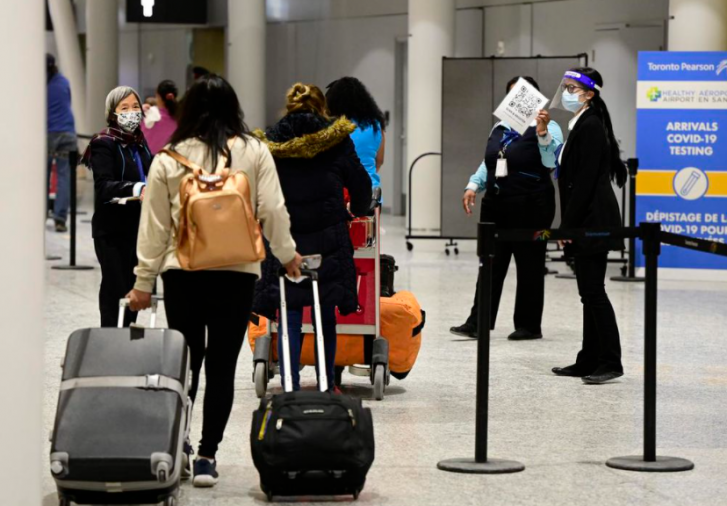Fully vaccinated travellers who are Canadian citizens or permanent residents will no longer have to quarantine when entering Canada, so long as they fit the government’s specific definition of being fully vaccinated.
On Monday, the Government of Canada announced exemptions for fully-vaccinated people looking to enter the country. Unvaccinated or partially vaccinated travellers will still have to fulfil testing and quarantining requirements when entering the country.
The exemptions apply to people eligible to travel to Canada. This means that you’re a Canadian permanent resident, tested negative for COVID-19 within three days of travel and are travelling for essential purposes. The Government of Canada has a questionnaire that can help determine whether you’re allowed to enter the country.

Travellers who were unable to enter Canada before Monday are still not permitted.
Here’s what you need to know:
What are the exemptions for fully-vaccinated travellers?
- No quarantining necessary
- Mandatory hotel quarantine not needed for air travellers
- No need for testing on your eighth day
What do I need to do in order to enjoy the travel exemptions?
*Note: Restrictions may also vary by province and territory
- Make sure Canada considers you fully vaccinated. This means that:
1. You have received complete dosage for an accepted COVID-19 vaccine, including a combination of approved vaccines. The vaccines accepted in Canada are: Pfizer-BioNTech, Moderna, AstraZeneca and Janssen (Johnson & Johnson). Other vaccines, including Sinovac and Sputnik V, aren’t accepted yet, but the list of accepted vaccines could expand in the future.
2. You received your last dose 14 days before entering Canada. This is based on the principle that it takes 14 days for the vaccine to build immunity in your body.
- Fulfil all entry requirements:
1. Complete the pre-entry testing.
Whether you’re crossing the border into Canada via land or air travel, you will need to take a test 72 hours before entering the country.
All travellers age five and older need to provide proof of a negative COVID-19 test result, regardless of citizenship.
2. Have a quarantine plan ready, even if you’re aiming for fully-vaccinated exemptions. This is just in case you are symptomatic and/or don’t meet all the requirements.
A government representative at the border will ask for a quarantine plan. This includes confirming you have a place to quarantine for 14 days that has access to basic necessities and isolates you from people outside of your travel group.
The representative will also determine whether you can enter Canada without quarantining.
3. Get tested upon arrival to Canada. You can register for testing in advance.
- Enter your proof of vaccination as well as quarantine and travel information into ArriveCAN.
ArriveCAN is an app that plays a vital role in keeping track of mandatory travel information. You can sign up by downloading the mobile app or accessing it online. Make sure to update it to the latest version.
You will not be considered for the fully-vaccinated exemptions if you don’t put the required information into ArriveCAN before arriving at the Canadian border.
Article From: The Star
Author: Celina Gallardo, Staff Reporter

